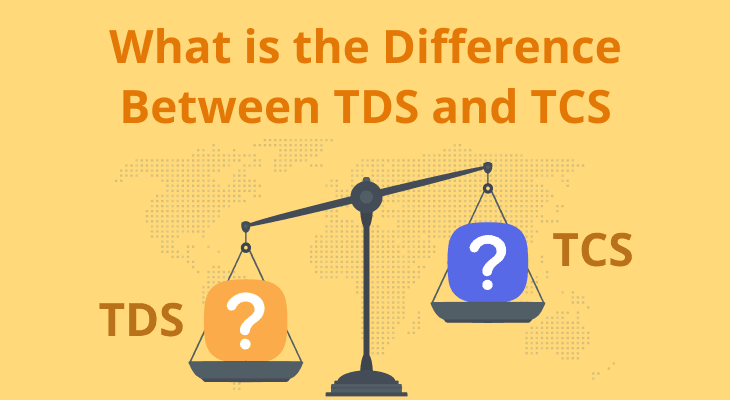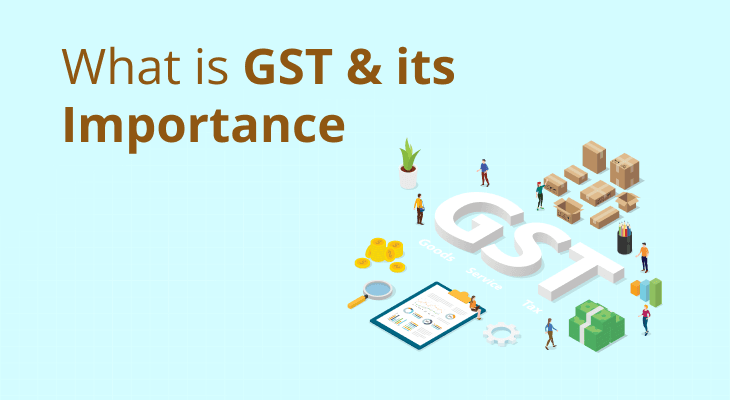
What is the Difference Between TDS and TCS
Taxes are an integral part of every country's financial system, and understanding the technicalities of tax rules is critical for good personal financial management. In India, the government charges different taxes to generate revenue, which is subsequently used to fund the country's growth. Two essential tax systems, TDS (Tax Deducted at Source) and TCS (Tax Collected at Source), play critical roles in tax collection. They may seem similar at first glance, yet there are substantial differences between the two. They serve distinctive purposes and are subject to various regulations. Let us discuss what TCS and TDS are, highlight their vital differences, and provide examples to help clarify these concepts.
What Is TDS?
Tax Deducted at Source (TDS) is a system in which tax is deducted directly from the income source. The payer deducts TDS at the prescribed rates and pays it to the government on behalf of the payee. This assures tax collection at the point of income generation. TDS is applied to a variety of earnings, including salary, interest, rent, and professional fees. Understanding the TDS approach helps ensure compliance and avoid fines. For instance, every month, your company deducts TDS from your salary and deposits it with the tax authorities.
What Is TCS?
Tax Collected at Source (TCS) is the tax that a seller collects from the buyer at the time of sale. The merchant collects TCS at the stipulated rates and deposits to the government. TCS applies to the sale of specified items, such as alcohol, tendu leaves, and minerals. The TCS full form emphasises its purpose: to collect taxes at the time of sale. For example, when you buy a car, the vendor may collect TCS from you and send it to the government. Understanding the TCS process is essential for both vendors and buyers to ensure compliance.
Comparison of TDS vs TCS
Understanding the differences between TCS and TDS is crucial for ensuring compliance with tax regulations. Below is a comparison of TDS vs TCS:
Characteristics | TDS | TCS |
Meaning | The payer collects tax at the source of income. | The seller collects tax from the customer at the time of sale. |
Responsibility | The person who makes the payment (deductor) is responsible for deducting and submitting TDS. | It is the seller's responsibility to collect and deposit TCS. |
Applicability | Applies to payments such as salary, interest, rent, professional fees, and commissions. | Applies to the sale of specific items such as timber, scrap metal, minerals, alcohol, and luxury automobiles. |
Rates | Varies depending on the type of income and the recipient's position. | Varies depending on the kind of items sold. |
Tax Deduction or Collection Period | Deducted at the time of payment or when it becomes due, whichever occurs first. | The seller collects it at the time of sale. |
Returns Filing | Quarterly returns (Form 24Q for salary, Form 26Q for other payments, and Form 27Q for NRIs). | Quarterly returns (Form 27EQ). |
Examples of TDS and TCS
TDS Example:
ABC Ltd. pays a monthly rent of ₹40,000 for a warehouse. The annual rent is ₹4,80,000, above the threshold of ₹2,40,000. ABC Ltd. will deduct 10% TDS (₹4,000) and pay ₹36,000 in monthly leasing rates. The warehouse owner will report ₹4,80,000 in gross income on their tax return and claim a TDS credit of ₹48,000.
TCS Example:
Mr. Sharma purchases ₹60,000 worth of tendu leaves from Mr. Mishra. Mr. Sharma will pay ₹60,000 + 5% TCS = ₹63,000 in total. Mr. Mishra will deposit the extra ₹3,000 as TCS with the government.
Effects of Failing to Deposit TCS and TDS
Failure to comply with TCS and TDS guidelines can lead to substantial fines and legal consequences. Here are the possible effects:
- Interest on Late Payment:
- TDS: 1% per month from the tax-deductible date to the actual deduction date.
- TCS: 1% every month from the date the tax becomes collectible until it is actually collected.
- Penalty: The Assessing Officer may apply a penalty equivalent to the amount of tax that is not deducted or collected.
- Prosecution: Severe instances of noncompliance may result in prosecution, with penalties ranging from three months to seven years of rigorous imprisonment, as well as fines.
- Late Fee: If TDS/TCS returns are not filed on time, there will be a late filing fee of ₹200 each day until the return is filed, up to a maximum okay equal to the TDS/TCS amount.
Conclusion
Understanding the TCS and TDS differences is crucial for both individuals and organisations seeking to comply with Indian tax regulations. Both are procedures that help the government collect tax income efficiently and effectively. Adherence to these tax regulations helps in avoiding legal penalties and ensuring a smooth financial operation.
FAQ
What happens if you don't deposit or collect TCS and TDS on time?
Failure to deposit or collect TCS and TDS on time might result in various fines and legal implications. If you fail to deduct or deposit the TDS, you will be required to pay interest at the rate of 1% per month from the day the tax was deductible until it was deducted. Similarly, the interest rate on TCS is 1% per month from the moment the tax becomes payable until it is collected.
Can TCS be collected after TDS has already been deducted?
No, TCS cannot be collected after TDS has been deducted. TCS and TDS are two independent methods of collecting taxes at different points. If TDS is deducted from a payment, there is no need to collect TCS for the same transaction.
How do you pay TDS and TCS?
Paying TDS and TCS may be done online using the Income Tax Department's portal. You can make the payment by net banking, debit cards, or other authorised ways. It is important to make timely payments to avoid fines and interest charges.
What are the rates for TCS and TDS?
The rates for TCS and TDS differ based on the kind of payment or items involved. For example, TDS rates on salaries depend on the appropriate income tax slabs, but TDS on interest income may be a flat rate of 10%. TCS rates, on the other hand, vary per product, such as 5% on the sale of tendu leaves and 1% on the sale of premium automobiles.
Who is responsible for filing TCS and TDS returns?
The responsibility for filing TCS and TDS returns is on the deductor and seller respectively. If you deduct TDS, you must file quarterly reports with forms such as Form 24Q for salary payments, Form 26Q for other payments, and Form 27Q for payments to non-residents. Similarly, the seller must make TCS quarterly returns on Form 27EQ.
What is the due date for depositing TCS and TDS?
TDS deposits must be made by the 7th of the month following the month in which the tax is deducted. The due date for the month of March has been extended till April 30th of the next fiscal year. The due date for TCS is similarly the 7th of the next month, with the March deadline being the 7th of April of the next fiscal year.
Can you claim TDS as a tax credit?
Yes, you can claim TDS as a tax credit when you file your income tax return. The TDS amount is credited against your overall tax liability, lowering the amount of tax you must pay. To claim this benefit, ensure that the TDS deducted is appropriately reported on your tax return.
Which commodities are subject to TCS?
TCS applies to the sale of certain items, such as timber, scrap metal, minerals, alcohol, and luxury cars. The rate of TCS varies according to the kind of products sold.
What is the full form of TDS and TCS?
TDS full form is Tax Deducted at Source, whereas TCS is Tax Collected at Source. Both are tax collection methods used in India, however, they function at distinct points in the transaction.
Are there any exemptions under TCS and TDS provisions?
Yes, there are several exemptions under TCS and TDS laws. For example, income from agriculture is free from TDS. Similarly, the Reserve Bank of India (RBI) and several government agencies are exempt from TDS. TCS exempts small buyers who acquire products for personal consumption rather than trade. Furthermore, TCS is not applicable if the customer declares that the products acquired will be utilised for manufacturing, processing, or production rather than for trade.
How do you rectify errors in TDS/ TCS returns?
If you make an error on your TDS or TCS returns, you can fix it by filing a rectification statement. For TDS, file the adjustment using the same forms (Form 24Q, 26Q, or 27Q) and specify the kind of correction necessary. Common problems include inaccurate PAN information, a wrong amount of TDS deducted, and incorrect challan information. TCS changes can be filed using Form 27EQ.

